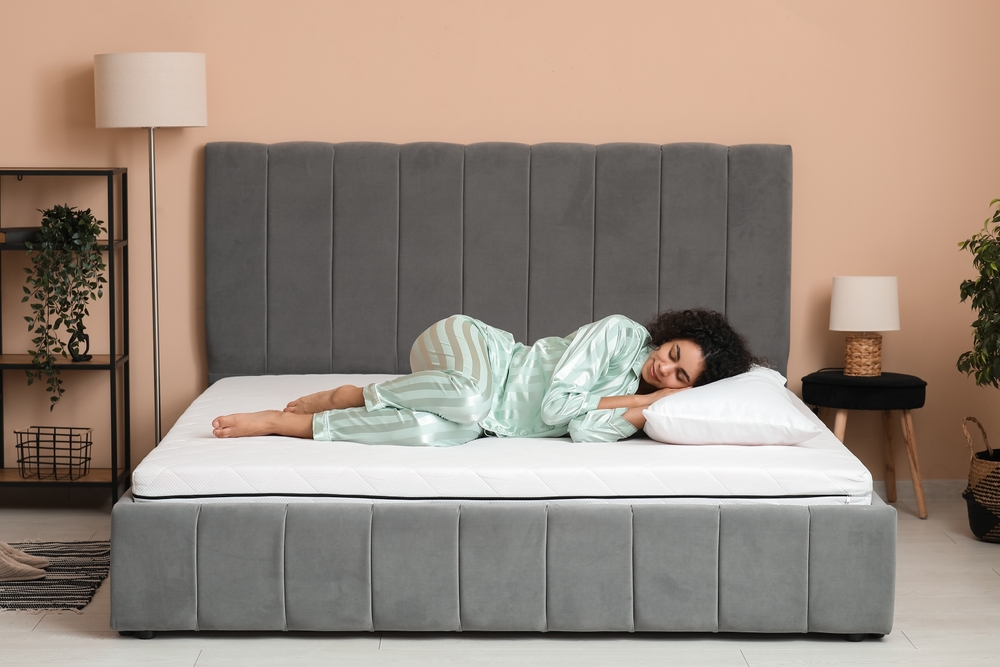The connection between pillows and chronic pain is often overlooked, yet it plays a crucial role in our overall health. Improper support during sleep can lead to persistent discomfort in the neck, back, and even contribute to headaches. Understanding this link is essential for managing and potentially preventing chronic pain.
The importance of proper pillow support
Your pillow’s primary function is to maintain proper body alignment during sleep. A poorly chosen or worn-out pillow can cause misalignment in the spine and neck, leading to muscle strain and long-term discomfort.
Alignment and pressure: The right pillow promotes proper circulation and reduces pressure on sensitive nerves in your neck and upper back. Conversely, pillows that are too firm or too soft can exacerbate these issues, causing frequent discomfort that affects not just your sleep but your overall well-being.
Types of pillows and their impact
Different pillow types offer varying benefits and drawbacks depending on individual needs:
Memory foam: Conforms to head and neck shape, providing personalized support. May not suit those who find it too hot or firm.
Feather: Soft and malleable, allowing shape adjustment. Tends to lose form quickly, potentially leading to inconsistent support and neck strain.
Latex: Offers firm, consistent support. Great for those needing steady support but may be too firm for some.
Orthopedic: Designed specifically to support the neck and spine. Often recommended for people suffering from chronic pain.
Sleeping position and pillow choice
Your sleeping position significantly influences how your pillow affects your body:
Back sleepers: Need a pillow that supports the natural neck curve. Memory foam or contoured pillows are often recommended.
Side sleepers: Require a thicker pillow to fill the gap between neck and mattress, keeping the spine aligned.
Stomach sleepers: Generally discouraged due to neck strain. If necessary, use a very thin pillow or none at all to minimize strain.
Chronic neck pain and pillows
Poor-quality pillows that lack adequate support can cause the neck muscles to overcompensate, leading to tightness, soreness, and long-term pain. This discomfort often radiates into the shoulders and back.
Signs your pillow may be causing neck pain:
- Waking up with stiffness or soreness that improves during the day
- Inconsistent support from a flat, lumpy, or worn-out pillow
- Frequent tossing and turning to get comfortable
- Headaches or shoulder pain accompanying neck discomfort
Back pain and pillow support
While mattresses are crucial for preventing back pain, pillows also play a significant role. Poor pillow support can contribute to lower back pain by affecting the alignment of your entire spine.
Additional support: For those with lower back pain, using a pillow under the knees (back sleepers) or between the knees (side sleepers) can help maintain the spine’s natural curve.
Pillow hygiene and health
Beyond support and comfort, pillow hygiene impacts health. Pillows accumulate dust, allergens, and bacteria over time, potentially causing respiratory issues, exacerbating allergies, and contributing to chronic sinus pain.
Maintenance: Clean your pillow regularly and replace it every 1-2 years. Some pillows come with removable, washable covers to help maintain cleanliness.
When to replace your pillow
Most pillows should be replaced every 18-24 months. Signs it’s time for a new pillow include:
- Lumpy, uneven, or flat feel
- Regular morning neck, shoulder, or back pain
- Increased allergy symptoms or respiratory issues
- Decreased comfort or support
Choosing the right pillow for pain relief
Consider these factors when selecting a pillow to help with chronic pain:
Material: Choose options offering both comfort and support, like memory foam or latex.
Sleeping position: Match your pillow to your preferred sleep style to ensure proper spinal alignment.
Durability: Look for pillows that maintain their shape over time to provide consistent support.
Your pillow and your health
The connection between your pillow and chronic pain is significant. Whether it’s neck, back, or shoulder pain, your pillow plays a key role in how well your body is supported during rest. By choosing the right pillow, maintaining cleanliness, and replacing it when necessary, you can potentially alleviate pain, improve sleep quality, and support long-term health.
Taking a proactive approach to your pillow choice can make a substantial difference in managing and preventing chronic pain. After all, the key to a good night’s sleep—and a pain-free life—might just be right under your head.
This story was created using AI technology.
















